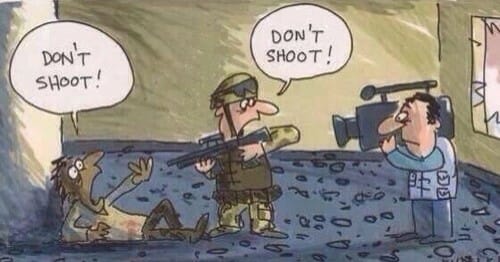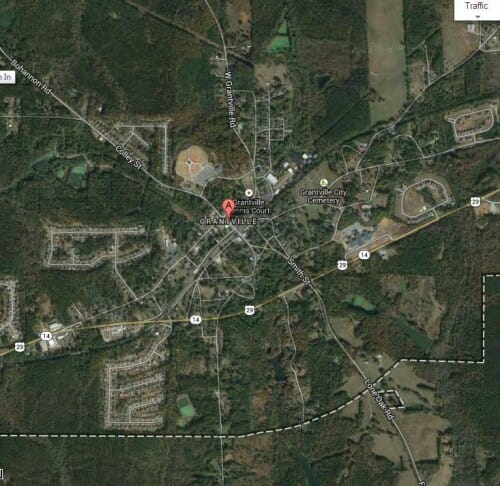Private Justice and the New Vigilantism of the Left
In the 1970's, Hollywood produced a number of movies that drew from a frustration that the criminal justice system was broken. Specifically, a surprisingly large number of people felt that due process protections of accused criminals had gone too far, and were causing police and prosecutors to lose the war on crime. In the Dirty Harry movies, Clint Eastwood is constantly fighting against what are portrayed as soft-hearted Liberal protections of criminals. In the Death Wish movies, Charles Bronson's character goes further, acting as a private vigilante meeting out well-deserved justice on criminals the system can't seem to catch.
There are always folks who do not understand and accept the design of our criminal justice system. Every system that makes judgments has type I and type II errors. In the justice system, type I errors are those that decide an innocent person is guilty and type II errors are those that decide a guilty person is not guilty. While there are reforms that reduce both types of errors, at the margin improvements that reduce type I errors tend to increase type II errors and vice versa.
Given this tradeoff, a system designer has to choose which type of error he or she is willing to live with. And in criminal justice the rule has always been to reduce type I errors (conviction of the innocent) even if this increases type II errors (letting the guilty go free).
And this leads to the historic friction -- people see the type II errors, the guilty going free, and want to do something about it. But they forget, or perhaps don't care, that for each change that puts more of the guilty in jail, more innocent people will go to jail too. Movies cheat on this, by showing you the criminal committing the crimes, so you know without a doubt they are guilty. But in the real world, no one has this certainty. Even with supposed witnesses. A lot of men, most of them black, in the south have been put to death with witness testimony and then later exonerated when it was too late.
This 1970's style desire for private justice to substitute for a justice system that was seen as too soft on crime was mainly a feature of the Right. Today, however, calls for private justice seem to most often come from the Left.
It is amazing how much women's groups and the Left today remind me of the Dirty Harry Right of the 1970's. They fear an epidemic of crime against women, egged on by a few prominent folks who exaggerate crime statistics to instill fear for political purposes. In this environment of fear, they see the criminal justice system as failing women, doing little to bring rapist men to justice or change their behavior (though today the supposed reason for this injustice is Right-wing patriarchy rather than Left-wing bleeding heartism).
Observe the controversies around prosecution of campus sexual assaults and the bruhaha around the video of Ray Rice hitting a woman in an elevator. In both cases, these crimes are typically the purview of the criminal justice system. However, it is clear that the Left has given up on the criminal justice system with all its "protections" of the accused. Look at the Ray Rice case -- when outrage flared for not having a strong enough punishment, it was all aimed at the NFL. There was a New Jersey state prosecutor that had allowed Rice into a pre-trial diversion program based on his lack of a criminal record, but no one on the Left even bothered with him. They knew the prosecutor had to follow the law. When it comes to campus sexual assault, no one on the Left seems to be calling for more police action. They are demanding that college administrators with no background in criminal investigation or law create shadow judiciary systems instead.
The goal is to get out of the legally constrained criminal justice system and into a more lawless private environment. This allows:
- A complete rewrite in the rules of evidence and of guilt and innocence. At the behest of Women's groups, the Department of Justice and the state of California have re-written criminal procedure and required preponderance of the evidence (rather than beyond a reasonable doubt) conviction standards for sexual assault on campus. Defendants in sexual assault cases on campus are stripped of their traditional legal rights to a lawyer, to see all evidence in advance, to face their accuser, to cross-examine witnesses, etc. etc. It is the exact same kind of rules of criminal procedure that Dirty Harry and Paul Kersey would have applauded. Unacknowledged is the inevitable growth of Type I errors (punishing the innocent) that are sure to result. Do the proponents not understand this tradeoff? Or, just like the archetypal southern sheriff believed vis a vis blacks, do women's groups assume that the convicted male "must be guilty of something".
- Much harsher punishments. As a first offender, even without pre-trial diversion, Ray Rice was unlikely to get much more than some probation and perhaps a few months of jail time. But the NFL, as his employer (and a monopoly to boot) has a far higher ability to punish him. By banning Ray Rice from the league, effectively for life, they have put a harsh life sentence on the man (and ironically on the victim, his wife). They have imposed a fine on him of tens of millions of dollars.
Postscript: For those who are younger and may not have experienced these movies, here is the IMDB summary of Death Wish
Open-minded architect Paul Kersey returns to New York City from vacationing with his wife, feeling on top of the world. At the office, his cynical coworker gives him the welcome-back with a warning on the rising crime rate. But Paul, a bleeding-heart liberal, thinks of crime as being caused by poverty. However his coworker's ranting proves to be more than true when Paul's wife is killed and his daughter is raped in his own apartment. The police have no reliable leads and his overly sensitive son-in-law only exacerbates Paul's feeling of hopelessness. He is now facing the reality that the police can't be everywhere at once. Out of sympathy his boss gives him an assignment in sunny Arizona where Paul gets a taste of the Old West ideals. He returns to New York with a compromised view on muggers...
I guess I was premature in portraying these movies as mainly a product of the 1970s, since this movie just came out.
Inevitably necessary note on private property rights: The NFL and private colleges have every right to hire and fire and eject students for any reasons they want as long as those rules and conditions were clear when players and students joined those organizations. Of course, they are subject to mockery if we think the rules or their execution deserve it. Public colleges are a different matter, and mandates by Federal and State governments even more so. Government institutions are supposed to follow the Constitution and the law, offering equal protection and due process.




